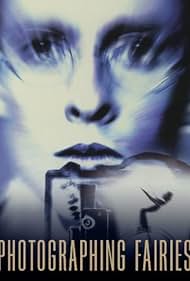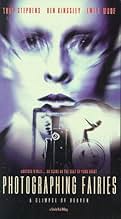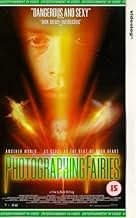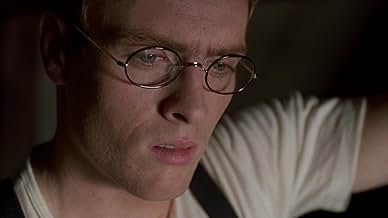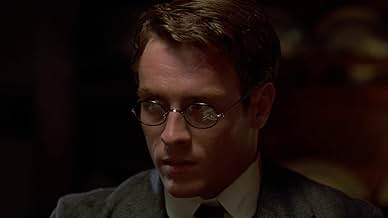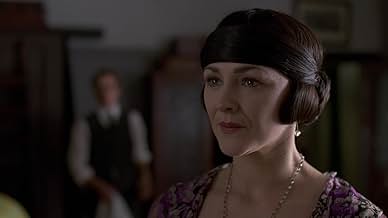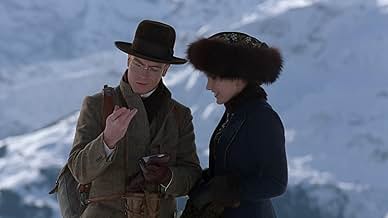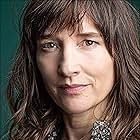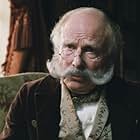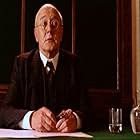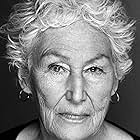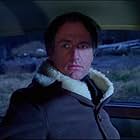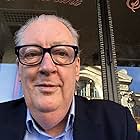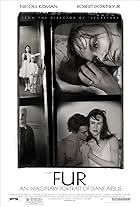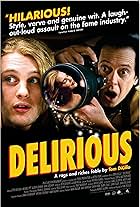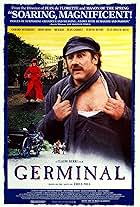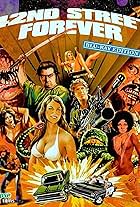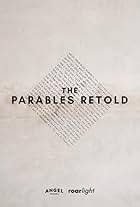Photographer Charles Castle is dazed with grief after the death of his bride. He goes off to war and works in the trenches as photographer. After the war, still grieving, Charles receives so... Read allPhotographer Charles Castle is dazed with grief after the death of his bride. He goes off to war and works in the trenches as photographer. After the war, still grieving, Charles receives some photographs that claim to be of fairies.Photographer Charles Castle is dazed with grief after the death of his bride. He goes off to war and works in the trenches as photographer. After the war, still grieving, Charles receives some photographs that claim to be of fairies.
- Awards
- 5 wins & 3 nominations total
- Director
- Writers
- All cast & crew
- Production, box office & more at IMDbPro
Storyline
Did you know
- TriviaEdward Hardwicke (Sir Arthur Conan Doyle) has played Doyle's Dr. Watson many times.
- GoofsWhen discussing the original photograph with Beatrice Templeton (Frances Barber), Charles Castle (Toby Stephens) says that the supposed fairy in the image could just be a 'glitch in the emulsion'. The use of the word 'glitch' is anachronistic. Glitch, meaning a small fault, didn't come in to common parlance till the 1960s some 40+ years after the setting of this film.
- Quotes
Gardner: Everyone of you here, ladies and gentlemen, has something in common, something that links you to your neighbor. We are all of us searching for a clue that shows us what life truly promises us, for a way of seeing what lies under the simple surface of things. Now recently, we've had continued messages at seances, messages indicating that a visible sign was coming through. Ladies and gentlemen, that sign is here. People talk about the miracle of photography. I'm going to show you a photograph of a miracle.
- ConnectionsVersion of BBC2 Play of the Week: Fairies (1978)
- SoundtracksSymphony No. 7 Op. 92 II. Allegretto
Written by Ludwig van Beethoven
Performed by The Philharmonia Orchestra
Conducted and orchestrated by Terry Davies
A positive surprise. The film is about a British photographer who's specialized in trick photography after he came home from WW1. He's a rational man, to the point where he's almost dead inside (the very opposite of Arthur Conan Doyle who also shows up in the tale, played by the guy who played Watson in the TV show btw) but that changes when a woman brings him some photos she claims show her daughters playing in their garden with a bunch of... you guessed it, fairies.
This is essentially a fantasy film, but it's not quite like most other fantasy films; questions about belief is the central theme, but it's stretched and played around with so it's constantly intriguing, even for a cynical agnostic (atheist if you're Christian) like me. Is heaven a state of mind, and if so, does that make it less worth? How do you find truth in life, and is it ever better to lie about the truth for the sake of those you love? Thematically they've incorporated many of the more "out there" ideas from the book in rather clever ways; drugs, sex, violence, are also themes in Szilagyi's innocently looking book, and the filmmakers have tried to stay true to this. This isn't some film about small creatures with crowns on their heads who smiles a lot, nor is it a funny Spielbergian flick, it's an exploration of grief and obsession and how those things can affect our beliefs, shake us to the very core. Yeah, it doesn't sound very jolly, which I guess it isn't, but it's interesting.
The cast is excellent, the music and photography far better then I had expected (same goes for the limited fx). Going by the cover and BBC's name on it somewhere, I actually thought it was maybe a TV movie. Really brilliant use of slow motion, not just for kicks, as a gimmick, even though it looks ravishing as well, but actually done in a meaningful way with regards to the plot (though that's easier to see if you've read the book).
The writers have changed a lot with regards to the plot; shuffled around, condensed, introduced new scenes/characters, and so on, but that's like it should be. Any attempt to take the book directly from the page would've failed miserably. They've even introduced a completely new intro & ending as well. It works like a charm, though some might find it a bit too convenient.
I did have some problems with it though... the lead is deliberately almost always kept at arms length, which is okay in some ways, but leads to detachment. I ended up finding his destiny more stimulating and interesting then gripping. There is also the inherent problem a book like this one poses when turned into a movie; how do you visualize ideas and thoughts. How do you visualize symbols? Film is a literal medium, and so it can't hide things the way language can, this film proofs that by coming up short in some of the books most magnificent sequences (but it improves on others); this isn't a fault from the filmmakers, what can they do after all, but it is a problem when they've chosen a story that is essentially more about mystical/spiritual question (going all new age here) then it is about the literal discovery of fairies.
Anyway, despite my few complaints, and despite the fact that this is not a mind blowing, life altering, hyper super fantastic religious experience of a film, I still highly recommend it. It's a rather unique and different attempt to play in the fantasy pen, and that is to be applauded I think. It's also pretty entertaining... if your idea of a good time is a bunch of Brits running around in gardens searching for fairies that is.
- DaveNoodles
- Jan 8, 2006
- Permalink
- How long is Photographing Fairies?Powered by Alexa
Details
- Runtime1 hour 46 minutes
- Color
- Sound mix
- Aspect ratio
- 1.85 : 1
Contribute to this page

